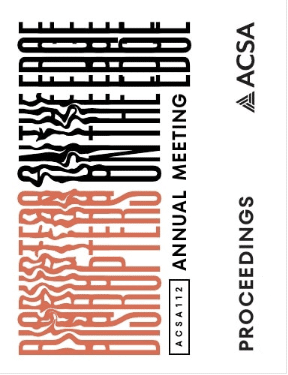Author(s): Stephanie Kyuyoung Lee
“Hard Labor, Soft Space” is a research-based design investigation on the current surge of collective farms and radical food systems in and around the Hudson Valley. What does it mean to create an infrastructure of care, and systems of resilience within a capitalist landscape of production, extraction, and exploitation? Against the backdrop of land distribution laws such as the Homestead Act (1862) and Alien Land Laws (1913 to present) that have driven the current racial disparity in agricultural land ownership, this project reframes rurality as a site of radical reclamation. This research forms a comparative genealogy of utopian agrarian projects in the U.S. Starting from Pietist settlements (such as Icarians, Shakers and Amana Colonies) to 19th and 20th Century Abolitionist movements in the United States, to the current wave of BIPOC-led radical farms. Through creating a continuous timeline, the project links together more than fifty agrarian based communities across the U.S. From early forms of abolitionist communities such as Nashoba Community (1825-1828) and Timbuctoo (1848–1855), to Black cooperative movements such as Freedom Farms Cooperative (1969-1976) and New Communities Incorporated (1969-1985). The project creates a BIPOC-centered historical narrative for recent land justice projects such as Sweet Freedom Farm, Gentle Time Farm, Soulfire Farm, Choy Division, and Ayni Herb Farm, all located within the state of New York. In 1972, Liselotte and Oswald Mathias Ungers’ published “Communes in the New World: 1740–1972”, a study on utopian commune living.2 “Hard Labor, Soft Space” is part-homage, and part-critique by addressing the erasure of racial history in rural ideation, and proposes future living strategies rooted in racial and social justice. Through archiving, interviewing and counter-mapping, this project highlights alternative agrarian settlements and renounces models of industrial farming that thrive on the extraction of labor, capital, and lands of others.
https://doi.org/10.35483/ACSA.AM.112.101
Volume Editors
Germane Barnes & Blair Satterfield
ISBN
978-1-944214-45-6

 Study Architecture
Study Architecture  ProPEL
ProPEL 
